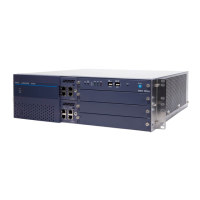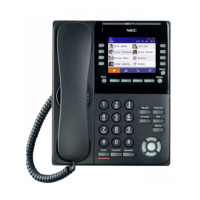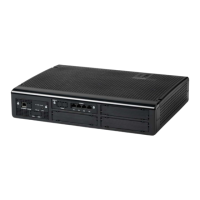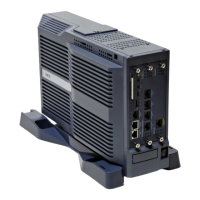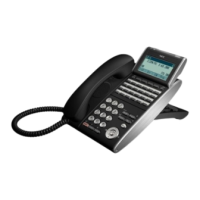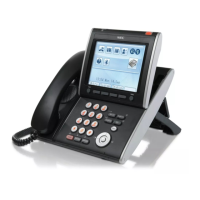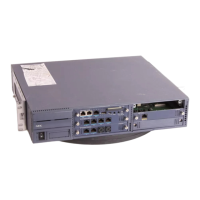UNIVERGE SV8100 Issue 1.0
SV8100 Features and Specifications Manual 2 - 379
20-09-01 Class of Service Options
(Incoming Call Service) –
Second Call for DID/DISA/DIL/
E&M Override
Turns Off or On the extension ability
to receive a second call from a DID,
DISA, DIL, or tie line caller.
With this option set to 1, the
destination extension must be
busy for a second DNIS caller
to ring through. If the
destination extension does not
have a trunk or CAP key
available for the second call
and a previous call is ringing
the extension but has not yet
been answered, the second
caller hears busy regardless of
this program setting.
0 = Off
1 = On
(default = 1 for
COS 1~15)
3
20-13-23 Class of Service Options
(Supplementary Service) –
Display the Reason for
Transfer
Select whether an extension should
display the reason a call is being
transferred to their extension (Call
Forward Busy, Call Forward No
Answer, DND).
0 = Off
1 = On
(default = 0 for
COS 1~15)
3
21-01-02 System Options for Outgoing
Calls – Intercom Interdigit
Time
Set the time-out interval for DID
callers that do not dial. After this
time, the DID call routes according to
Vacant Number Intercept
programming.
0~64800 (seconds)
(default = 10 seconds)
3
22-01-06 System Options for Incoming
Calls – DID Ring-No-Answer
Time
Set the DID Ring No Answer (RNA)
Intercept time (0~64800 seconds).
In systems with RNA Intercept, the
DID call rings the destination
extension for this time, and then
rings Intercept Ring Group. (default:
20).
0~64800 (seconds)
(default = 20 seconds)
3
22-02-01 Incoming Call Trunk Setup For each Night Service Mode, enter
service type 3 when the trunk should
be a DID trunk.
Trunks 1~200
0 = Normal
1 = VRS (second
dial tone if no
VRS installed)
2 = DISA
3 = DID
4 = DIL
5 = E&M Tie line
6 = Delayed VRS
7 = ANI/DNIS
8 = DID(DDI) Mode
Switching
(default = 0)
3
Program
Number
Program Name Description/Comments Assigned Data
Level
1 2 3

